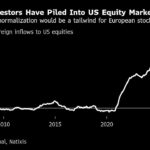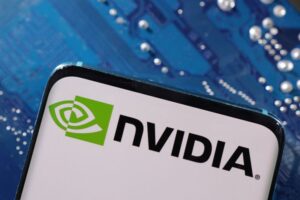Nvidia stock soared almost 150% in the first half of the year.
It’s always encouraging when a company’s leader buys shares or when the company itself launches a share buyback program. This suggests management is confident about what’s ahead, and that may encourage us to get in on the shares, too. When the opposite happens, though, and a chief executive officer sells shares, we might wonder if leadership is losing faith — and whether we should follow the move.
Earlier this week, the scenario unfolded at one of today’s most-talked-about companies: artificial intelligence (AI) chip giant Nvidia (NVDA -2.61%). Chief executive officer Jensen Huang sold almost $44 million worth of shares from July 15 through July 17, adding to sales earlier in the month. Nvidia stock has soared in recent times, rising nearly 150% in the first half — and that’s after the stock’s quadruple-digit increase over the previous five years.
After Nvidia’s incredible run, should you follow Huang’s move and lock in profits? Let’s find out.

Image source: Getty Images.
Putting Huang’s decision into context
First, it’s important to put Huang’s decision into context. It came as part of his Rule 10b5-1 trading plan, an agreement allowing insiders to sell a set number of shares at a fixed time. Insiders schedule such transactions at times when they don’t hold important news about the company that could potentially spur share movement. All of this means Huang’s sale of the 360,000 shares is simply a pre-scheduled transaction and isn’t indicative of a particular sentiment about where the stock price is heading.
On top of this, it’s important to note that Huang still holds an enormous number of Nvidia shares even after his recent transactions. As of the company’s definitive annual proxy statement, reporting ownership as of March 25, Huang held more than 93 million Nvidia shares.
Still, you may be wondering why Huang is selling shares even on a predetermined basis. We don’t know the answer to this. But, considering his enthusiasm about Nvidia’s prospects and the growth we’ve seen at the company so far, it’s likely a move to lock in profits here and there — without impacting the size of his holding by very much.
Now let’s get back to our question: Should you follow Huang’s move? If you don’t yet own Nvidia shares, Huang’s transactions aren’t a reason to avoid the stock — as mentioned above, they aren’t a sign of troubles or headwinds.
Nvidia’s track record of growth along with its future prospects make it a great stock to buy and hold for the long term. The company is set to release its Blackwell architecture later this year along with its most powerful chip ever — demand is surpassing supply, an indication that this new product could supercharge Nvidia’s already strong growth. Nvidia also promises to update its chips on an annual basis, a pledge that could ensure the company’s AI chip dominance for the long term.
Let your investment strategy guide you
But what if you hold a significant number of Nvidia shares? Should you then lock in profits? This depends on your investment strategy. It’s likely Nvidia has a lot of fuel in the tank to power the stock higher in the years to come. But if you have a significant holding and would like to invest in other areas or are seeking to free up cash for other purposes, now is a fine time to follow Huang’s move and sell some of your shares.
Reducing a holding doesn’t necessarily reflect a loss of enthusiasm about a particular stock — it instead could offer you the funds you need to further diversify your portfolio and score a bigger win over time.
All of this means that whether you decide to hold on to all of your Nvidia shares or, like Huang, let a few go, this top stock still could play a big role in the growth of your portfolio as the exciting AI story develops.
Adria Cimino has no position in any of the stocks mentioned. The Motley Fool has positions in and recommends Nvidia. The Motley Fool has a disclosure policy.






